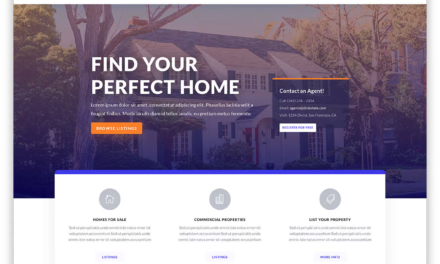Customer relationship management (CRM) is integral to your operations as a realtor. However, as your business grows, you might find it increasingly challenging to keep track of your interactions with leads and customers, especially if you use spreadsheets or physical binders.
Upgrading your CRM for real estate is a giant leap toward stronger connections, more conversions, and higher revenue. In this guide, we at Become a Local Leader® discuss the benefits of CRM for real estate and how to use this software to ensure sustainable business growth.
What Is the Best CRM Software for Real Estate Agents?

So what is CRM for real estate? In a strategic sense, real estate CRM involves building and maintaining business relationships with prospective and existing customers. Real estate CRM software helps automate the process by offering convenient access to data on leads, vendors, property buyers, and property sellers.
CRM software stores data such as a lead’s personal information, generation channel, and property portfolio objectives. You can also use CRM tools to automate and personalize communications with leads to maximize conversions while saving valuable time.
You can choose from two types of CRM applications:
- Desktop CRM software that runs on your PC
- Cloud-based CRM software that you can access online from a remote server
Leveraging CRM for Real Estate in the Digital World

You need to use CRM software to streamline your communications as a realtor. You deal with many people, and staying on top of their requirements can be challenging.
For example, when someone calls you, you should know when you spoke to them last, what they want to achieve, and which solutions you can offer them. Building an up-to-date CRM system that provides access to a customer’s profile allows you to communicate more effectively.
The sections below discuss the benefits of CRM software for real estate.
Organize Business Data
Staying on top of transactions and processes can be challenging if you don’t have unrestricted access to your business data. Many realtors who lack a flexible CRM system find themselves constantly reacting to problems and emergencies.
A CRM system should provide central and convenient access to your business data with a robust notification system. By gaining one-click access to all relevant information, you can proactively manage your business, foresee potential issues, and take steps to prevent these problems.
Generate and Manage Business Leads
CRM software provides valuable insights into how leads interact with your website, marketing emails, or paid ads. This information helps you make informed marketing decisions and determine the most effective marketing channels. Your CRM software also lets you know which marketing segments you should target to maximize your return on investment.
With CRM software, you can segment your leads according to their needs. For example, if you have a new listing, you can consult your CRM system to find prospective buyers who might want to schedule a viewing.
Personalize Communications and Customer Service
One-size-fits-all communication with leads is generally not effective. You want to personalize your marketing communications to ensure that messages resonate with all your audience members.
For example, if you recently sold a house to someone, you should continue communicating with them, as they will likely refer friends and family to you, while someone in the market for a house will want to learn more about your new listings.
CRM software lets you personalize customer communications according to their needs, which maximizes engagement and conversions.
Manage Contracts and Transactions
Many CRM systems feature contract management tools to help you draw up, store, and share real estate contracts and other legal agreements. Incorporating these tools into your contract and transaction management will result in quicker contract turnaround times and satisfied customers.
CRM systems for real estate can also automate some aspects of the contract creation process to save time and eliminate mistakes. Using this software, you can set reminders and alerts to track all transactional developments.
Generate Reports
As a realtor, you must track various performance indicators to reach your business objectives. These metrics include the number of new contacts per month, the average showings per sale, net income, and more.
You can use CRM software for real estate to generate reports and gain insights into your performance. This feature lets you identify problem areas that need attention to achieve sustainable growth over the long term.
Scale Your Referral Network
CRM software lets you build and manage relationships with other service providers in your industry. Contractors, mortgage brokers, and conveyancing attorneys also work with prospective property buyers and sellers. Building and maintaining relationships with these professionals can be highly profitable.
CRM in real estate lets you store these service providers’ information, allowing you to automate communications with them. You can also use your CRM system to refer customers to these service providers.
How To Choose a Good CRM for Real Estate Business

When choosing a CRM for your real estate, you need to consider your business requirements. Generally speaking, free CRM for real estate doesn’t offer the same functionality as paid software. However, some tools have free trials available that you can use to make an informed decision.
When evaluating a CRM tool, pay attention to:
- Integration with other platforms: Can you integrate the CRM software with your email service provider, Google Docs, or other business platforms?
- Functionality: Does the CRM software provide the features you need—for example, referral tracking, advertising campaign management, lead management, and email marketing automation?
Top CRMs for Real Estate Agents in 2022
The top CRMs for realtors include:
- PipeDrive
- Reavolve
- Bigin by Zoho
- Salesforce Sales Cloud
Some of these CRMs have multiple plans available, and you should select one that fits your business model and the number of users in your office.
Final Thoughts
Incorporating CRM for real estate into your business is an effective way to streamline your operations and build sustainable relationships. A CRM tool also saves valuable time and prevents costly mistakes.
Do you have a favorite CRM tool for real estate? Feel free to share your experiences and recommendations in the comments below.






